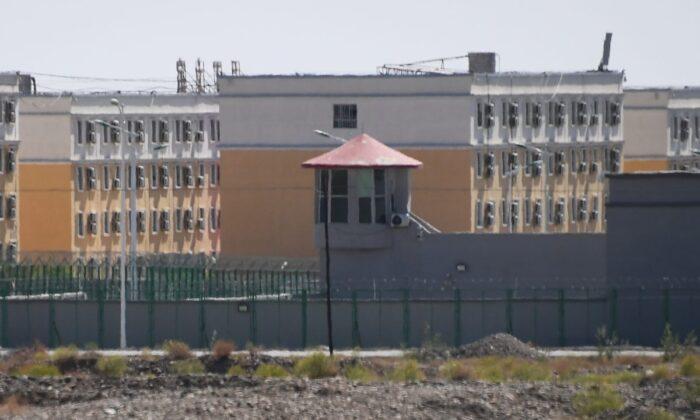As the economic slump grew deeper this year, Chinese people’s trust in the labor market, their wages, and their interest in purchasing homes all plummeted to record low levels, a recent survey shows.
The People’s Bank of China’s Employment Sentiment Index, representing residents’ prospects for jobs, fell to 33.1 in the fourth quarter of 2022, down from 35.4 in the prior quarter, according to Bloomberg.
It is the lowest figure since the data began to be collected back in 2010. Figures under 50 signify a contraction in the industry.
Meanwhile, the Income Confidence Index—signifying the outlook for income in the next three months, saw a decline to 44.4 compared to 47 in the third quarter.
The number indicates the lowest number since 2001, according to the quarterly survey of 20,000 depositors nationwide, released on Dec 27.
The survey results were among the first indicators of business sentiment in the world’s second-largest economy after China’s sudden relaxation of strict pandemic containment measures on Dec. 7 triggered a still-growing wave of COVID-19 cases.
Record-Low Business Confidence
The bleak sentiments of China’s residents came as the country’s private sector—its biggest source of employment—has been plagued by business interruptions due to COVID-19 policies and financing difficulties.China’s stringent zero-COVID measures disrupted business and confined millions of people to their homes for weeks and sometimes months at a time.
China’s Business Confidence index fell to 48.1 in December from 51.8 in November, according to the World Economics’ survey of sales managers at over 2,300 companies, conducted Dec. 1–16.
The figure was the lowest since the data began to be documented in 2013.
The study found that the manufacturing and service sectors’ sales managers’ indices both fell below 50 in December, indicating a substantial decline in company activity.
“The percentage of companies that claim to be currently negatively impacted by COVID has risen to a survey high, with more than half of all respondents now suggesting their operations are being harmed in one way or another,” the study reads.
“Many small businesses have run out of liquidity, especially restaurants, gyms, hotels, and other city services,” said Dan Wang, chief economist at Hang Seng Bank China.
Housing Market Confidence Declines
Housing market confidence also continued its downward trend in the last quarter of 2022, survey data showed, despite Beijing’s economic stimulus measures.Only 14 percent of respondents to the central bank survey anticipated an increase in property prices in the following quarter. That represents a new low in the data, which goes back to 2010.
Only 16 percent of respondents stated they intended to buy a property in the following three months, compared to 17.1 percent in the previous quarter. According to the study, nearly 62 percent, up from 58 percent, claimed they were saving more money.
Ongoing Real Estate Crisis
The low expectations for the property market persisted despite recent stimulus measures launched by Beijing to boost the sector.On the real estate front, the CCP introduced a slew of policy-loosening measures to support developers.
In November, China’s six largest state-owned banks came out to offer more than 925 billion yuan ($130 billion) in credit support to property developers. The move was an attempt to stop the spread of financial troubles, amidst a continued liquidity crunch in the country’s property sector. China Vanke Co., Midea Real Estate Holding, Country Garden Holding, and China Overseas Land and Investment were some of the developer beneficiaries.
China’s central bank and its banking regulator released a joint policy document on Nov. 24, outlining ways the country’s financial institutions should set expectations on real estate transactions, including down payment ratios and interest rate boundaries to support the real estate sector.
However, these support measures are unlikely to alter the negative trajectory of China’s real estate market.
In 2021, China witnessed the defaults of some giant property names including China Evergrande Group, Sunac China Holdings, and China Resources Land.
Chinese developers left millions of presold housing units unfinished due to liquidity problems. As a result, many Chinese banks are facing a mortgage payment halt or “mortgage strike”—where homebuyers refuse to pay mortgages unless the developers resume construction.
S&P Global estimated that 2.4 trillion yuan (about $355 billion) of mortgages could be at risk of being unpaid. That amounts to around 6.5 percent of all outstanding mortgages.
The rating agency also projects that home sales in China could drop as much as 33 percent this year amid the mortgage strike, further squeezing the liquidity of distressed developers and leading to more defaults, Bloomberg reported.
Kathleen Li, Fan Yu, and Reuters contributed to this report.




